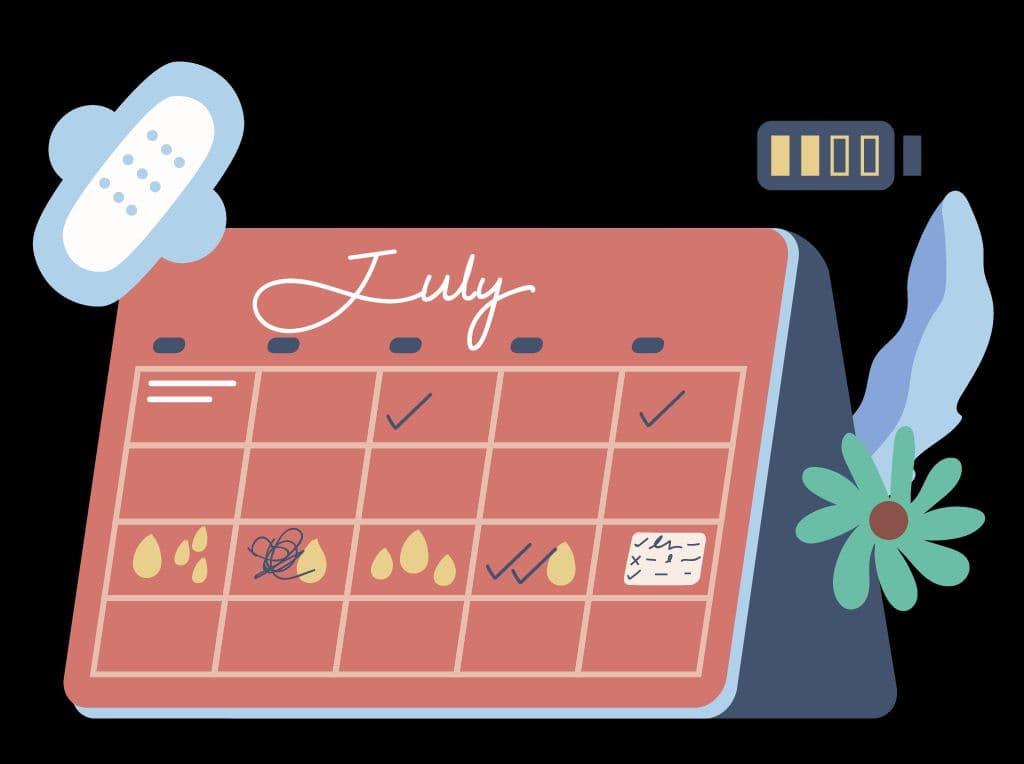This article has been compiled by Vaibhavi Kodnani, a content writer at Proactive For Her.
Preventing weight gain is much easier than losing weight. Everyone realises this much later when things go out of control.
Depending on our genetics, maybe not all of us will gain weight as we age. Still, that does not give us the liberty to eat whatever we want. We need to start eating healthy and exercising right from a young age. It will help in having a good body composition and prevent drastic changes in weight later on.
Why do people gain weight with age?
Ageing typically begins at the age of 25 with changes in the skin and hair, which may go unnoticeable. Taking good care of your body can slow down your ageing. After 40 years of age, many notable changes start occurring, which can eventually lead to weight gain. However, understanding these body changes will help you make the right food and lifestyle choices to maintain a healthy weight.
Muscle loss
Muscles are metabolically active tissues and to maintain them, our body requires more energy. After we cross 30 years of age, our lean muscle starts declining anywhere between 3-8% per decade. Furthermore, most of our jobs being sedentary, we hardly engage in any physical activities. Having some clinical conditions can restrict our movements, again causing muscle loss. Hence, even if we are eating normally but are not physically active, the energy we gain is not utilised by our muscles. This unused energy will be stored as fat in our body.
Stress
Stress is not uncommon today. We are always on the run chasing different goals - career, money, discipline, relationships and whatnot. We often find ourselves in a time crunch, leaving us with little or no time for ourselves. We skip healthy meals and opt for quick, ready to eat snacks which provide little or no nutrition value to our bodies. Exercising is out of the question because of exhaustion. It takes a heavy toll on our mental and physical health. Stress also increases our hunger hormone, ghrelin, so we end up eating more than our body requires. These outbursts of emotional or stress eating increase the fat storage in our body.
Slowing metabolism
The body’s metabolism works all the time to convert all that we eat and drink into energy to function. However, as we age, our metabolism tends to slow down. As a result, we spend fewer calories and store most of them in fat, leading to weight gain.
Hormonal changes
Hormonal changes affect both men and women as they age. For women, with the advent of menopause, estrogen levels start declining. It leads to a loss in muscle mass, frequent mood swings and stress. It causes an increase in unhealthy food cravings, making it hard to adhere to healthy eating. Women may also feel unmotivated to follow a structured workout routine. All of this can cause weight gain in women.
The testosterone levels in men start dropping from the age of 40. Testosterone is responsible for gaining muscle mass and strength and regulating fat distribution. With its decline, the muscle mass will start reducing. It means the body will no longer require as much energy as before, so most of it will get stored.
Lifestyle changes
Some lifestyle changes like starting a family can also contribute to weight gain. Having a baby is a life-changing event. The couple works extra hours to provide the best to their child. They have to involve themselves fully in their child’s growing years. In such a situation, they may not find enough time to focus on their health as much as before.
How can people lose or prevent weight gain?
Losing weight is not that hard if you incorporate these simple changes.
Watch the portion sizes
If we do not burn all the energy gained from the food and beverages consumed, the excess energy will be stored as fat. Hence, a simple solution to avoid fat storage in the body is to take care of the portion sizes and preferably eat less. It will ensure that the body is optimally using whatever we are consuming.
Focus on the diet
We cannot eat whatever we want and then complain about weight gain. It is crucial to eat healthy to reach a healthy weight. Here are some tips:
Increase fibre intake: Eat all fruits and vegetables to get micronutrients and fibre. Also include those that have a high water content in them. It will help in two ways - to curb sugar cravings and to keep the gut healthy. With slowed-down metabolism, constipation is a common complaint. But ensuring enough fibre and water in our diet will take care of this problem.
Consume whole grains: We all are aware of the ill-effects of eating foods containing refined carbs and refined sugars. They add absolutely no nutritional value to our bodies. Hence, replace refined foods with whole foods. Eat nuts as they are healthy fats.
Stay well-hydrated: Our body is 60-65% water while the muscles are 70% water. Water aids with various functions and maintenance of muscle mass. Often we tend to confuse the sensation of thirst with hunger and end up eating unnecessarily. Hence, staying well-hydrated becomes crucial to prevent unwanted episodes of eating. Water, kokum sharbat, lemon water, coconut water, cold-pressed and unstrained fruit juices are beneficial beverages for our body. It is better to avoid calorie-loaded sodas, colas, etc. On an average, we need to drink 1 litre of water for every 20 kgs we weigh. It could vary based on various factors.
Practice stress management and sleep well
No one knows your body better than you. No matter what happens, you have to prioritise your health over other things. Find the tools and activities that can help de-stress. But stay away from alcohol, smoking and recreational drugs. Meditation and yoga are popular tools to calm your body and mind. Apart from this, you can indulge in hobbies like music, painting, doodling or anything that gives you joy. Stress management will prevent you from stress or emotional eating.
Secondly, sleep plays an equally important role in managing stress and curbing sugar cravings due to fatigue. Hence, if you sleep well at night, you will automatically plan your day well. It will allow you to include some time for yourself and do some physical and de-stressing activities.
Include some physical activity
We cannot underestimate the benefits of being physically active. Exercising not only helps in maintaining a healthy weight but also in balancing out hormones. It increases serotonin, the hormone that improves our mood and makes us happy. Thus, it is also helpful in managing stress. If you are confused about what kind of exercise you should be doing, our suggestion would be to do what you enjoy the most.
Experts recommend a combination of aerobic exercises and strength training. Aerobic exercises like walking, running, cycling, trekking, rowing, etc. are good for cardiovascular health. Strength training can be performed using weights or body weight. It will help in increasing and maintaining bone density, strength and lean muscle mass. Include at least 30-40 minutes of exercise, 5 times a week in your schedule.
If you are still not convinced, maybe you need to know about the complications with weight gain.
Some people may argue that weight gain is not bothering them. But once it starts showing adverse effects is when most of us realise that we should have been careful.
Below is a list of complications associated with weight gain:
- Heart diseases - heart attacks, hypertension, atherosclerosis (hardening of the arteries), stroke
- High bad cholesterol
- High triglyceride levels
- Hypothyroidism
- Insulin resistance (Type 2 Diabetes)
- Metabolic syndrome
- Fatty liver
- Hernia
- Hyperacidity, heartburn
- Physical problems - Back problems, stiffness in the neck or shoulders, spondylosis
The declining bone mineral density in menopausal women put them at a higher risk of:
- Arthritis
- Osteopenia
With these conditions, the movement gets restricted, which contributes to weight gain as well.
Many of us tend to ignore these problems until it becomes severe. Popping a pill will help you with your day but is not a long term solution. It is better to prevent these complications by eating good, nutritious food and adopting a healthy lifestyle.
But I don’t even have the time to breathe; how will I manage my weight?
We know even after providing essential and easy tips, this question will be raised by many people. It is understandable, considering that we are in a fast-paced world. Therefore, we have some tips for such people as well.
Right foods and portion size: If you cannot exercise, then focus on your diet more. You are what you eat. Eat whole grains, fruits, vegetables, nuts and everything healthy. Cut the junk out of your life. Also, make sure you are not eating more than what your body requires.
Don’t exercise; practice NEAT: Non-exercise activity thermogenesis or NEAT is for all those people who do not have the time to exercise. It includes activities that will aid thermogenesis that will increase your body temperature, helping you burn more calories. You can incorporate NEAT into your daily schedule with ease.
- Go for a short walk in between work hours
- Take the stairs instead of the elevator
- Ditch the car and cycle to run errands
- Do household chores like washing dishes, brooming, dusting, cooking
- Hand wash your clothes
- Play with kids or pets
- Walk while talking on the phone
- Install a standing desk
Bottom line
There is a lot of social pressure for everyone to look a certain way. But understanding that ageing is inevitable is the first step to accepting the changes in your body. Secondly, the sooner you adopt a healthy lifestyle and eating habits, the better you will feel. If you are facing any difficulties with weight even after that, it is better to seek medical help as it may be due to underlying medical conditions too.
Disclaimer - This information is provided for educational purposes and should not be construed as medical advice. Please consult with your healthcare practitioners before undertaking any changes in your diet or adding supplements.
ProactiveForHer is a digital clinic for women, offering accessible, personalized, and confidential health-care solutions. We offer products and services for out-patient health concerns of Indian women, across their lifetime - from puberty to pregnancy to menopause. To know more on the sexual and reproductive health of women, visit https://www.proactiveforher.com/

